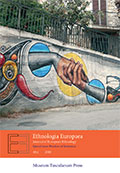 |
|
|
Boginfo |
|
| |
|
|
|
|
Museum Tusculanums Forlag bruger cookies for at huske dine indstillinger. Ved at bruge sitet accepterer du dette. Accepter cookies
|
| |
|
|

|
0
|
Vejl. pris150 DKK 23 $ 20 € 18 £
|
|
Onlinepris120 DKK 18 $ 16 € 14 £
|
|
|
Må du bare eje denne bog?
Man kan desværre ikke købe direkte i vores webshop lige nu da den betalingsløsning vi tidligere har anvendt, er lukket.
En ny – og bedre – hjemmeside er på vej, men den er ikke helt klar endnu.
Indtil den lanceres, kan du bestille bøger på den gammeldags maner, ved at skrive til order@mtp.dk. Så sender vi dig bøgerne med en faktura.
Husk at angive navn og adresse til forsendelsen i din mail.
Bestillinger sendes som udgangspunkt som pakker til afhentning; læs mere her. Hvis du behøver levering til døren, så angiv også det i din bestilling.
|
In many Mediterranean countries we observe newcomers to the political arena: new forms of social networking, growing opposition, and protest articulated by local communities or locally active social movements. In this special issue we present fresh research on localized practices of resistance by protest groups, solidarity initiatives, and cultural projects, which have arisen in the wake of the 2008 crisis.
Based on ethnological fieldwork, the volume offers insights into the media-based protest against the commodification of the historic Marseille district Panier (Philip Cartelli); urban gardening in Ljubljana as a practice opposing the growing neoliberal market economy (Saša Poljak Istenič); and the movement Genuino Clandestino, a solidarity network of small-scale farmers in Italy (Alexander Koensler). Three case studies deal with social movement in Greece: a solidarity network in Volos, where citizens developed an alternative exchange and trading system (Andreas Streinzer); grassroots mobilizations as resistant practices in the inner urban neighbourhood of Exarchia in Athens (Monia Cappuccini); and finally rural solidarity networks on the Peloponnese peninsula (James Verinis).
A comparative discussion of Mediterranean protest movements (Jutta Lauth Bacas and Marion Näser-Lather) identifies underlying common features in these clearly different, yet relatable practices of protest: among others, the major role of face-to-face interaction and mutual trust.
In many Mediterranean countries we observe newcomers to the political arena: new forms of social networking, growing opposition, and protest articulated by local communities or locally active social movements. In this special issue we present fresh research on localized practices of resistance by protest groups, solidarity initiatives, and cultural projects, which have arisen in the wake of the 2008 crisis.
Based on ethnological fieldwork, the volume offers insights into the media-based protest against the commodification of the historic Marseille district Panier (Philip Cartelli); urban gardening in Ljubljana as a practice opposing the growing neoliberal market economy (Saša Poljak Istenič); and the movement Genuino Clandestino, a solidarity network of small-scale farmers in Italy (Alexander Koensler). Three case studies deal with social movement in Greece: a solidarity network in Volos, where citizens developed an alternative exchange and trading system (Andreas Streinzer); grassroots mobilizations as resistant practices in the inner urban neighbourhood of Exarchia in Athens (Monia Cappuccini); and finally rural solidarity networks on the Peloponnese peninsula (James Verinis).
A comparative discussion of Mediterranean protest movements (Jutta Lauth Bacas and Marion Näser-Lather) identifies underlying common features in these clearly different, yet relatable practices of protest: among others, the major role of face-to-face interaction and mutual trust. |
|
|
|
|
|
|
|
|
|
|
|
|
|